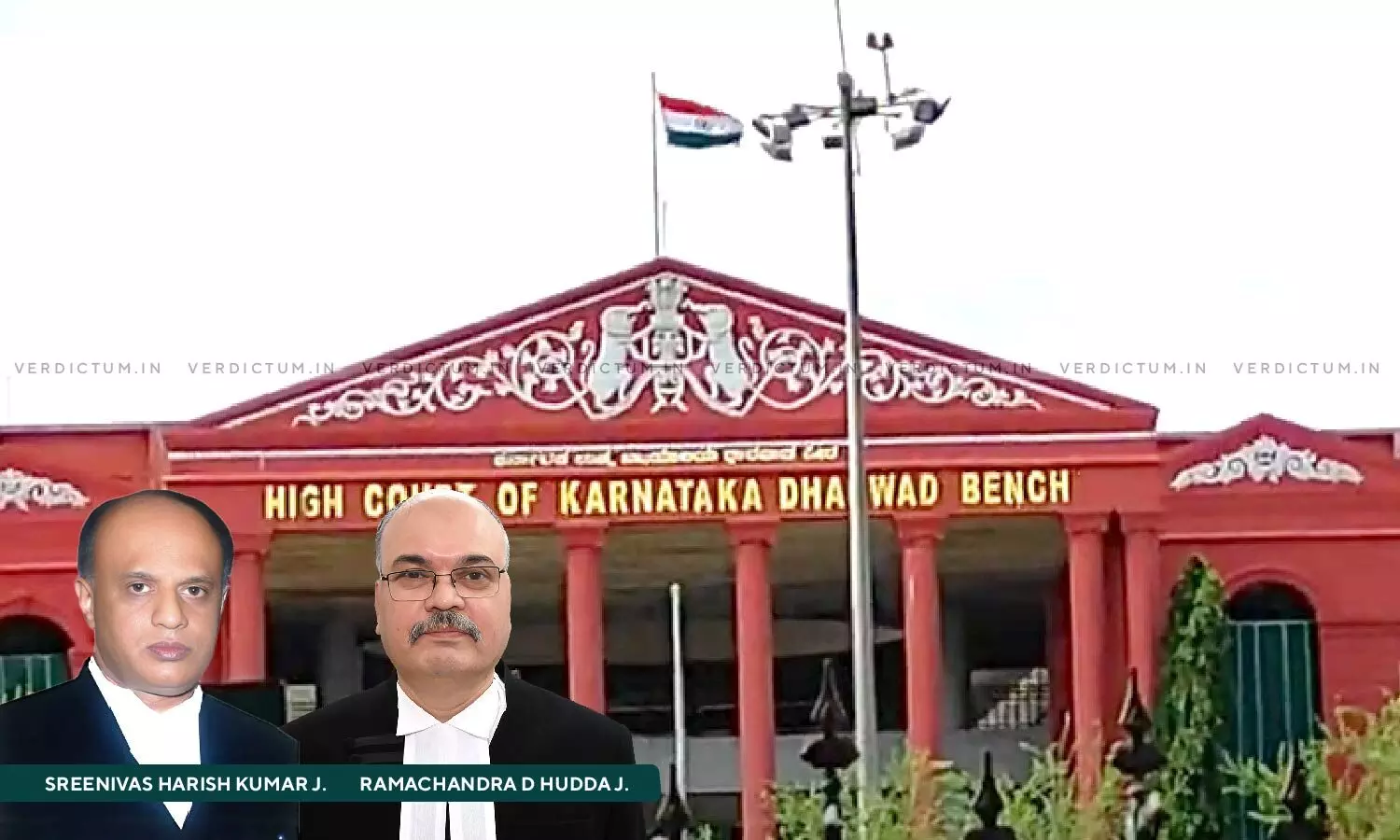
Plaintiff Need Not Meet Contentions Of Defendant In Written Statement By Filing Rejoinder- Karnataka High Court
 |
|A Karnataka High Court Bench of Justice Sreenivas Harish Kumar and Justice Ramachandra D Huddar has held that whenever a defendant takes up a specific contention in his written statement, it is not necessary for the plaintiff to meet it by filing a rejoinder.
In that context, it was said that "It is not the rule of pleading that whenever a defendant takes up a specific contention in his written statement, the plaintiff must meet it by filing a rejoinder. The plaintiff may choose to file a rejoinder under Order VIII Rule 9 CPC with the permission of the court, it is not always mandatory or compulsory."
Counsel G Meerabai, among others, appeared for the appellants, while Counsel Arun L Neelopant and Counsel Sheelavant, among others, appeared for the respondents.
The question arising in the appeals was whether the parties were precluded from taking possession of the suit property in proportion to the shares declared by the Trial Court.
The Trial Court had held that the lease for the suit property as not permanent, and both the plaintiffs and certain defendants had rights to them. It also held that the plaintiffs can claim more than just rental income.
The defendants had argued that the plaintiffs did not file rejoinder under Order VIII Rule 9 CPC to the written statement filed by defendants 12 and 13 contending about permanent tenancy and thereby their specific contention stood admitted impliedly and therefore there was no need to frame an issue casting burden on defendants 12 and 13 to prove that they were permanent tenants.
The Court held that merely for the reason that rejoinder is not filed, it cannot be stated that there is a deemed admission by the plaintiff of the specific contention. In that context, the Court also referred to Section 103 of the Indian Evidence Act, which reads that "The burden of proof as to any particular fact lies on that person who wishes the Court to believe in its existence unless it is provided by any law that the proof of that fact shall lie on any particular person."
In light of the same, the Court observed that, "In the case on hand defendants 12 and 13 particularly pleaded about permanent tenancy and the burden lay on them to prove it; it was not the argument of Sri Sheelavant that defendants 12 and 13 were not required to prove that issue or another person was to prove it."
Affirming that the lease was not permanent, the Court held that neither the appellants nor any person deriving interest under defendants 12 and 13 could claim immunity from eviction from leased property.
Subsequently, the appeals were dismissed with costs by the High Court.
Cause Title: Smt. Latha Holeyappa Bulla & Ors. v. Smt. Jakkava & Ors. [NC: 2023:KHC-D:9490-DB]
Click here to read/download the Judgment